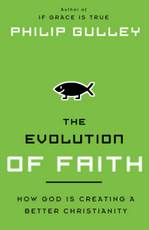Recent comments around the blogosphere on the publication of the new NIV reminded me of my first encounter with biblical textual criticism at age 14. Curt Bench,1 my youth Sunday school teacher at the time, took me aside as Ammaron of old and gave me a bible. “Son,” he said, “You are a sober youth of sound mind and so I give you this.” It was a hardbound NIV. “This is not the King James version, but it is a new translation made by believing Christians and not godless heathens.” My sentiments must have been something akin to what Tom Sawyer felt as he claimed his own prize Bible. I was grateful to have been so favored and entrusted. So much so that I’m presently wondering if sending a thank-you note 14 years late might not be too tacky.
Anyways, it was around this same time that I first learned of Joseph Smith’s having pronounced the Song of Solomon uninspired. Incensed at its surreptitious self-insertion into Holy Scripture and being the good Mormon boy I was, I ripped it out of my new Bible. If Brother Bench had known, I imagine he would have disapproved. And so it sits on my bookshelf to this very day, a testament to the zeal of my youth.
My current self respectfully disagrees with this kind of approach to the text. Or any text. Additionally, here are some more things I’ve changed my mind on since coming to graduate school:
-
AT BYU I thought most scholars of religion in the outside world were atheists or at least tongue-in-cheek about their belief. I was mistaken. At least in biblical studies, it seems that religious issues interest people who are more religious than otherwise. Even the most liberal scholars, it seems, have some kind of faith, even if it differs drastically from mine.
-
My goal in my first year of college was to write a book someday on the Apostasy — it’s causes, stages of development, culprits, etc. While I still have a personal interest in the Apostasy, I think my original idea is very problematic for a couple of reasons. When I had that idea, I had never even read the texts I planned to use. I had answered yet unformulated questions. I had already made up my mind without doing any research. As obvious as it seems, I now believe that research questions ought to arise from having studied the texts. I also struggle to place a work on the Apostasy in any career hoping to to live up to the adjective “academic.”
-
Surprisingly, post-modernism and gender studies are not scholastic tools of the devil, but rather interesting avenues of inquiry. They ought to have particular interest for Latter-day Saints although it’s true that both good and bad has been published in their names.
-
I have not moved as far to the left politically as I expected to. I know Chris H. is disappointed. 🙁
-
When I left Utah, many people told me that I would either lose my testimony or become gay or both. I don’t plan to do either, but I haven’t been away that long.
-
At a left-of-center divinity-theological school/seminary I have learned much about being a Christian from those who prioritize advocacy for the vulnerable and the marginalized. I view my own covenants with the Lord differently because of the examples of good friends I have met here.
-
Many more people are curious about the church than I expected. Talking about church history and doctrine is easy with people who do not shy away from religious questions. In fact I have had to initiate few of the many conversations I have had with outsiders about the church, and a few people have even come to church and met the missionaries.
Maybe you readers have had similar experiences and can find humor in some of my before and after stories. Admittedly, I bring up a few of these points to laugh at myself, but I am not interested in — nor do I deserve — self-congratulation.2 Rather, I hope to introduce someone still learning, wanting to learn, and learning to want to learn. I guess that’s what kept me lurking at FPR in the first place and I’m happy to be participating in this capacity.











